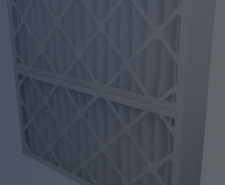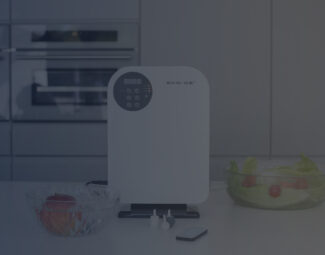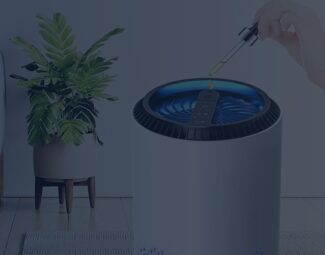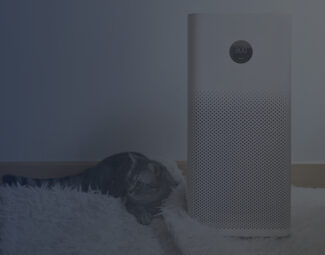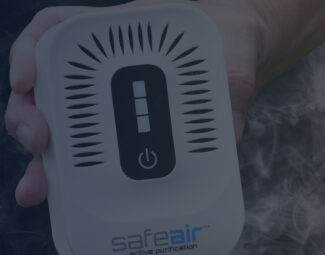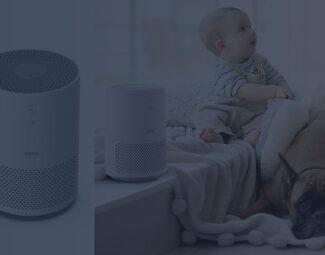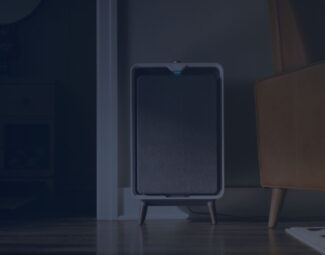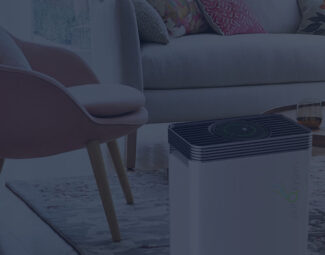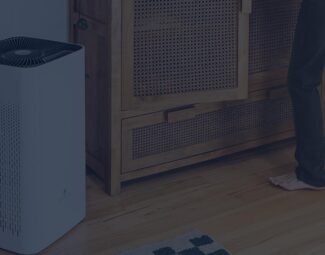A dequate filtration is not optional if you seek to protect your health and well-being seeing how polluted the air indoors can get. From dust to viruses, the sanctity of your home is plagued by all sorts of particles and microorganisms that, when inhaled, can destabilize your immune system, affect the respiratory system, and even your cardiovascular health.
For this reason, filter media has seen continuous upgrading, new mechanisms and standards being employed to further add to pollutant trapping efficiency in HVAC systems, air purifiers, and any other product reliant upon filtration. Evidently, not all filters are created equal, and if you seek efficiency in the system you acquire, continue to read to first understand how two of the most common filter types work and differ, more precisely MERV filters and HEPA filters.
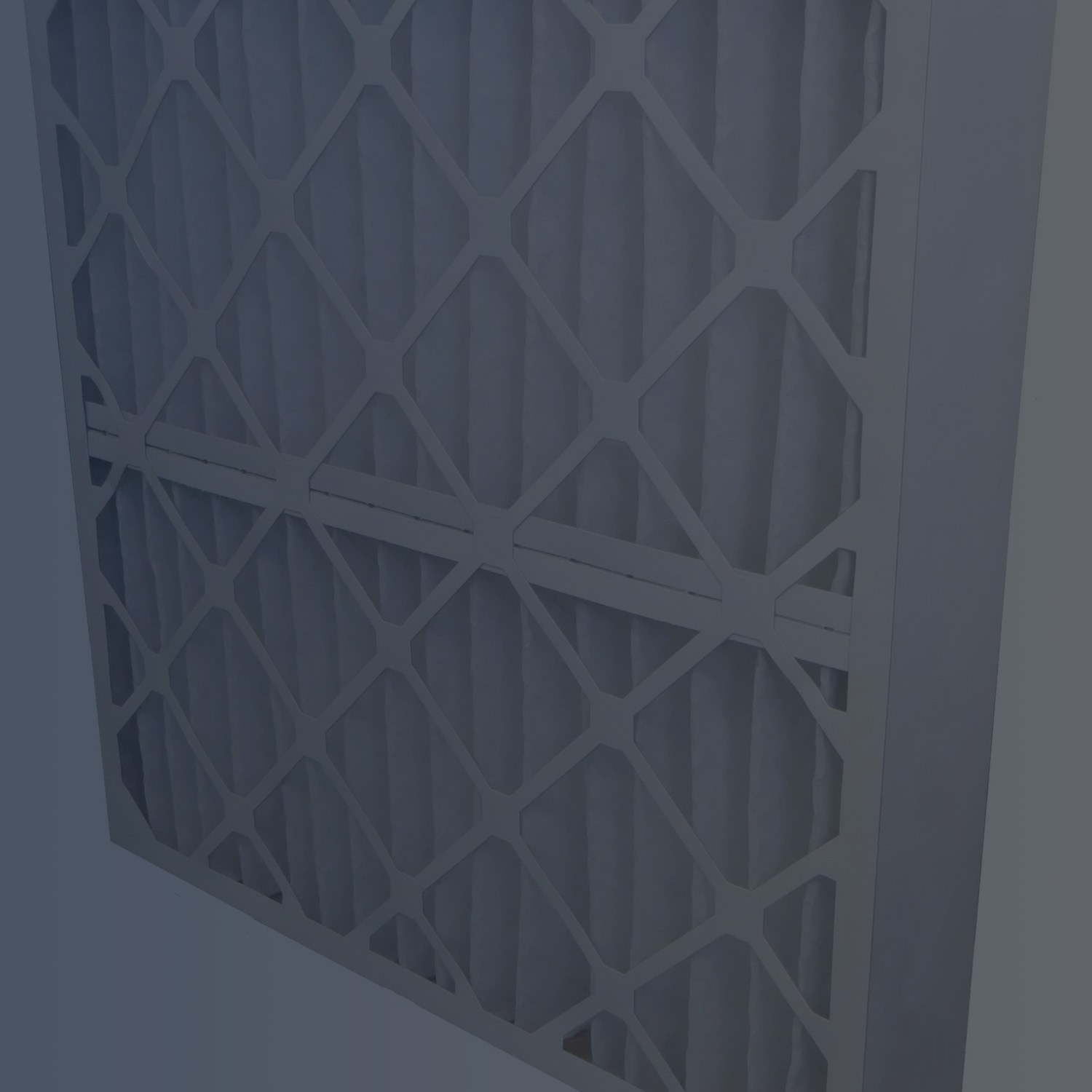
MERV 8 Air Filter
What You Need to Know About MERV Filters
Definition: MERV represents a system of rating air filters according to their efficiency toward air pollution reduction. The value can range from 1 to 20, and with the rating standard, the higher values represent the ability of the system to catch a higher percentage of particles that pollute the air.
Characteristics:
- High MERV ratings are recommended if you seek the removal of allergens from the air as the fibers they are comprised of are layered optimally to trap the smaller-size particles which are generally at fault for triggering symptoms in sensitive individuals.
- This scale addresses particles that scope in size from 0.3 to 10 micrometers.
- High-rated media is able to retain fumes, smoke, and biological growth, flaunting a considerably higher efficiency when it comes to obliterating airborne particulates to amp air quality, whereas lesser media do not provide the same feat.
- Keep in mind that values are not standard, so the manner in which products are rated varies from one brand to another, and one system to another. For example, in crawlspace dehumidifiers, MERV-8 filters represent a good standard to look into as proper entrapment of particles in the moist air pulled in is provided.
Pros:
- MERV rating is quite ample and defined so that it categorizes more fairly the actual efficiency of the filter related to the reduction of contaminants.
- Filters rated MERV-8 to 12 are perfectly suited for dealing with indoor allergens and polluting particles, regardless of their nature.
- This standard has been developed by the ASHRAE, so you can rest assured knowing that the rating system has been put together by professionals.
- Test procedure is infallible and it is based on the removal efficiency of differently-sized particles, the trials being performed for particles ranging from 0.3 to 10 microns in size so that it covers as many categories of airborne pollutants as possible.
Cons:
- Even the smallest oversight in regards to maintenance can lead to clogging, which in turn results in the fact that the MERV filter will affect the airflow of the HVAC system.
- For it to trap allergens, you must look into one rated 11 or higher. However, keep in mind that these filters are more restrictive and affect airflow, as aforementioned, so with this standard, the higher the efficiency is, the better for pollutant removal, but worse for system performance.
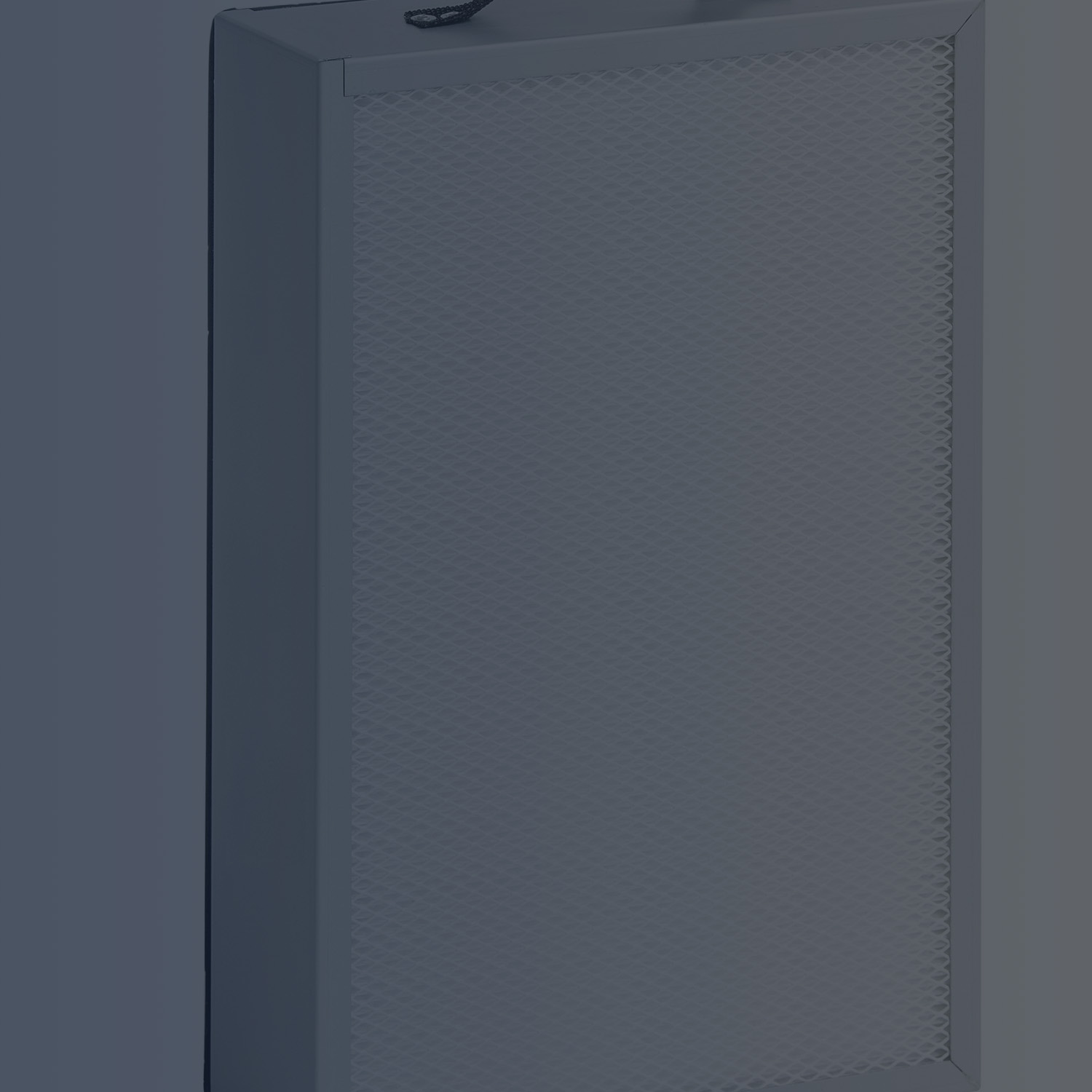
H13 HEPA Filter
What You Need to Know About HEPA Filters
Definition: The filter media that is rated to comply with HEPA standard is widely considered as the best for air purification as the standard compliance title is only given to filters that have a reduction capability of 99.97% and tackle particles sized down to 0.3 microns.
Characteristics:
- HEPA filters are mechanical filters that have gone through testing before receiving certifications for their efficiency toward removing specific particle size. Only filters that comply with the standard receive the True HEPA title.
- As the air is passing through the system and encounters the HEPA media, some particles will naturally adhere to the fibers, whereas others get trapped into the fiber contours.
- Beware that when you see a filter being rated as HEPA-like or HEPA type, it means that it does not comply with the high standard True HEPA filters follow.
- In air purification systems, HEPA media is generally utilized in combination with activated carbon media to provide odor removal, regardless of the smell’s source, whether it’s caused by pets, cooking, cleaning products, or any other factor.
Pros:
- Highest rated efficiency in terms of air pollutant removal as it exceeds 99.97% when it comes to impurity reduction. Moreover, its capability to tackle ultra-fine particles shouldn’t be overlooked either as no other filter media can trap particles down to 0.3 micrometers, sometimes even smaller than that, depending on the model.
- Flaunts the highest efficiency when it comes to the removal of allergy-triggering particulates from the air. Recommended by specialists for households where allergy and asthma sufferers reside.
- Used not only in air purifiers but in vacuums as well. Its particle trapping efficiency serves to improve the home cleaning process as pet hair, pet dander, allergens, and all other impurities of the sort will be removed from the surfaces so that you won’t be in danger of picking them up.
- Replacement is generally required only every 2 or 3 years, which makes the lifespan of this filter media significantly longer than that of competitors.
- In some cases, you will notice that it is labeled as permanent or washable. This means that you can clean the HEPA filter when impurities accumulate in it, this action actually being recommended periodically (how often the procedure needs to be performed is either mentioned in the manual or you have to do visual checks periodically to see when cleaning is needed). As it is cleanable and reusable, it helps you save money on a replacement, which is an obvious upside.
Cons:
- If the system doesn’t include a UV light sterilizer as well, bacteria reduction won’t be as effective.
- If the purification system doesn’t feature an activated carbon filter as well, the removal of odors, chemicals, fumes, and gases won’t be as effective.
- When replacement is due, it is a costly affair, so it’s good news that it isn’t required all that often.
MERV vs. HEPA
While HEPA filters remove all types of particles and microorganisms down to 0.3 micrometers, MERV filters require that you check their rating to make sure the specific air pollution problem you have can be handled by the product. In this sense, if you seek to remove fine dust particles from the air, you should opt for a MERV rating between 8 and 12, an estimated 70% to 85% efficiency being provided for the removal of this specific pollutant from the air by the media.
With MERV 4 or lower filters, expect an efficiency of 20% when it comes to pollution reduction, from 20% to 85% if the media is rated MERV 5 to 8, and over 85% efficiency if the filter is rated at a minimum MERV 9 (MERV 13 to 16 models can even clear bacteria from the air). For a MERV filter to get close to the efficiency of a HEPA filter, it should be rated 13 minimum.
Conclusion
So, what’s better, MERV or HEPA? MERV ratings are generally given to filters used in dehumidifiers and air conditioners, whereas the HEPA standard is generally seen in filters for air purifiers and vacuums. These are standards that you can use as guidance to more easily figure out the efficiency toward air pollutant reduction of a filter or system, so one is not necessarily better than the other. What you need is to be informed regarding what each stands for and what it indicates, information that has already been provided here, and you are sure to make a suited selection when it comes to the filtering media for the system you have in mind.

